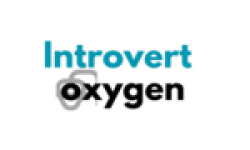Leonardo da Vinci, one of the greatest minds of the Renaissance, is widely known for his masterpieces like the Mona Lisa and The Last Supper.
However, beyond his artistic achievements, Leonardo constantly battled with self-doubt. In fact, his notebooks are filled with notes that show his restlessness and relentless pursuit of knowledge.
Da Vinci’s journals weren’t just sketches of his inventions; they were also filled with thoughts, observations, and reflections on his life and work.
During times of uncertainty, Leonardo would pour his ideas and frustrations into his journals, writing down questions about the world and about his own worth.
His journals became a space where he could experiment freely without fear of judgment, helping him refine his ideas.
Frida Kahlo, the iconic Mexican artist known for her vibrant self-portraits, endured immense physical and emotional pain throughout her life.
After a severe bus accident left her with debilitating injuries, Kahlo struggled with chronic pain, multiple surgeries, and periods of isolation. Beyond the physical struggles, she also battled emotional pain from her tumultuous relationship with fellow artist Diego Rivera.
During her hardest moments, Kahlo turned to journaling. She filled her diaries with not only words but also sketches, poems, and expressions of her emotional turmoil. Through her writing, she confronted her inner demons and used the space to work through her feelings of pain, betrayal, and suffering.
For Kahlo, journaling was more than just writing—it was a form of emotional catharsis and self-expression. It allowed her to process her trauma and gave her the courage to keep creating.
As an introvert, you likely know the feeling of being overwhelmed by emotions or thoughts.
Social situations can drain your energy, and often, you retreat into your own head to process everything.
But what happens when these thoughts stay bottled up inside?
Without a healthy outlet, they can grow into anxiety, confusion, and emotional exhaustion. That’s where journaling steps in—a simple yet powerful tool that can help you manage your internal world, release stress, and find clarity.
As introverts, we tend to internalize our emotions and thoughts, which, over time, can become overwhelming. Without an outlet to process these feelings, we can find ourselves trapped in cycles of overthinking, anxiety, and emotional exhaustion.
Ignoring these feelings can have serious consequences:
- Increased anxiety: Without an outlet to release your emotions, stress can build up, leading to chronic anxiety.
- Overthinking: When you don’t process your thoughts, they can spiral, leaving you stuck in a loop of indecision.
- Emotional burnout: Keeping everything inside without release drains your emotional energy, leaving you feeling fatigued and disengaged.
Let’s explore the specific five benefits of journaling for introverts.
1. Emotional Release: Lighten Your Mental Load
Journaling offers a simple yet powerful way to release pent-up emotions.
As introverts, we tend to internalize our feelings rather than express them outwardly, which can lead to an emotional buildup over time.
Journaling works as a personal outlet where you can pour out your thoughts, frustrations, and anxieties without the fear of being judged.
For example, think about how stressful it feels when you keep a problem to yourself for days. Writing about that problem in a journal allows you to release that burden, often making the issue feel more manageable.
Just like Frida Kahlo used her journal to process her physical and emotional pain, you too can find relief by expressing your inner world on paper.
Research even shows that expressive writing helps reduce stress and improve mental well-being. By giving your emotions a place to go, journaling helps you feel lighter and more at peace.
2. Clarity and Perspective: See the Bigger Picture
Have you ever found yourself overthinking to the point of feeling stuck?
Journaling is a way to untangle those thoughts and gain clarity. Introverts are natural thinkers, but sometimes our thoughts can spiral into confusion.
Writing things down helps you see your thoughts from a different perspective. Once they’re on paper, they often seem less overwhelming.
Take Leonardo da Vinci, for example. He constantly battled perfectionism and self-doubt. But by putting his thoughts into his notebooks, he was able to organize them and gain clarity about his work.
Journaling can have the same effect on you,it forces you to confront your thoughts, sort through them, and ultimately find solutions to the challenges you face.
A study in the Journal of Experimental Psychology found that writing about stressful experiences allows people to reframe them in a more positive or productive light.
It’s like cleaning out a cluttered room in your mind—you can finally see what’s important and discard what’s not.
3. Boosting Creativity: Tap into Your Inner Genius
Journaling doesn’t just help with emotional and mental clarity—it’s also a fantastic tool for sparking creativity.
Introverts often have rich inner worlds and deep wells of creativity, and journaling gives you the freedom to explore that. Whether it’s doodling, writing poetry, brainstorming ideas, or even planning projects, journaling encourages your creative side to flourish.
Leonardo da Vinci’s notebooks were filled not only with sketches but also with half-formed ideas and questions about the world. He wasn’t afraid to experiment on the page.
This freedom to jot down whatever came to mind is what helped him refine his thinking and bring his greatest inventions and artworks to life. Journaling works the same way for you.
If you give yourself permission to write freely without worrying about the outcome, you’ll notice that new ideas, solutions, and creative insights start to flow.
4. Self-Awareness: Know Yourself Better
Journaling is one of the best tools for building self-awareness, something that comes naturally to many introverts.
By reflecting on your thoughts and emotions regularly, you gain a deeper understanding of who you are,what triggers your stress, what brings you joy, and what areas of your life need attention.
Oprah Winfrey is a great example of how journaling can foster self-awareness. She has spoken about how journaling helped her process her emotions and understand herself better, especially during challenging times.
When you journal regularly, you’ll begin to notice patterns in your behavior, reactions, and feelings. Over time, this self-awareness allows you to make better decisions, improve your emotional intelligence, and navigate situations that might otherwise overwhelm you.
In a study published in Harvard Business Review, it was found that journaling enhances self-awareness, which in turn improves decision-making and emotional regulation.
5. Gratitude: Shift Your Focus to Positivity
Gratitude journaling is a specific form of journaling that helps you focus on the positive aspects of your life.
For introverts, who often spend time reflecting inwardly, it can be easy to get caught up in negative thoughts or anxieties.
Writing down things you’re grateful for can shift your mindset and help you focus on the good, even during tough times.
Oprah Winfrey credits much of her positive mindset and success to her daily gratitude journaling. By writing down just a few things she was thankful for each day, she was able to maintain perspective and stay grounded despite challenges.
Research from the Greater Good Science Center has shown that people who regularly practice gratitude experience greater happiness and emotional well-being.
It doesn’t take much—just a few minutes each day to note what you’re grateful for can have a profound impact on how you see the world.
So grab a notebook and start writing. Your thoughts deserve to be heard, and journaling can be the key to unlocking a more peaceful, balanced life.









